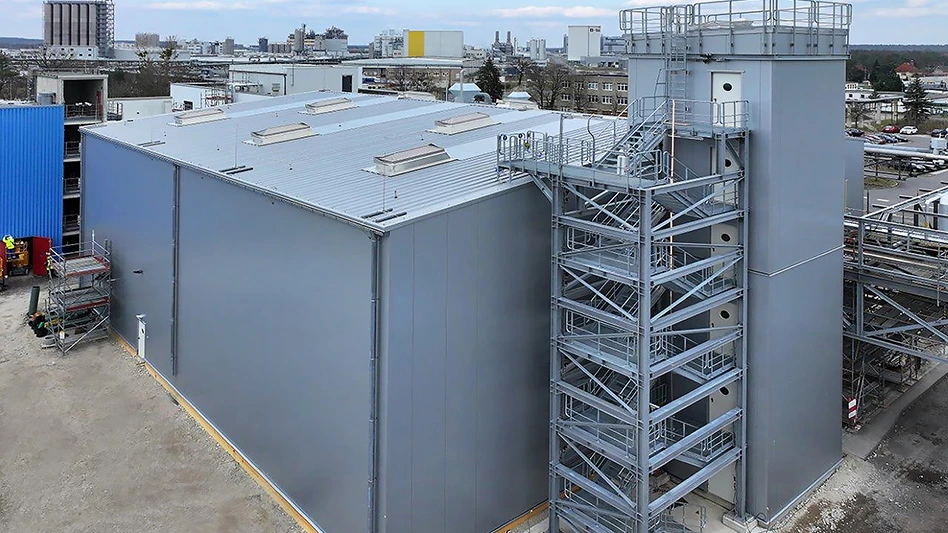
Photo courtesy of BASF Battery Materials
The BASF Battery Materials business unit of global chemicals company BASF has started up its prototype metal refinery for lithium-ion battery recycling in Schwarzheide, Germany.
The technology being deployed will recover lithium, nickel, cobalt, manganese and copper from end-of-life lithium-ion batteries and battery production scrap.
“The prototype metal refinery is another milestone in the construction of Europe’s first co-located center of battery materials production and battery recycling in Schwarzheide,” the company says.
The new recycling facility complements BASF’s existing cathode active materials (CAM) plant and a battery recycling plant for the production of black mass that is scheduled to start operations later this year.
“With the expected rapid growth of the electric vehicle (EV) market, battery recycling provides competitive and sustainable access to critical metals,” says Daniel Schönfelder, Ph.D., president of BASF’s Catalysts division, who also is responsible for the company’s battery materials and battery recycling business. “We will use the extracted metals to enable a truly local circular economy for the battery value chain.”
BASF says it is committed to recovering the metals to increase the self-sufficiency of Europe and comply with the EU Battery Regulation.
BASF has as its goal establishing a commercial-scale refinery in Europe. “This will strengthen BASF’s footprint in Europe, complementing a strong collection network for end-of-life batteries and battery production scrap, black mass production as well as battery materials production to accelerate the transition to a circular electromobility in Europe and support the development of a sustainable battery materials ecosystem,” the company says.
Latest from Recycling Today
- Bridgestone introduces retreating plant virtual tour
- USTMA announces Tire Recycling Foundation
- Dow announces agreement with Freepoint and MOU for Asia Pacific market with SCGC
- Mixed signals chracterize ferrous market
- Researchers look into ironing out a secondary aluminum limitation
- Analysis: Chemical recycling’s ‘inflection point’ nearing
- Machinex system in Québec targets organics diversion
- Northern Shenandoah region awarded $3.9M for recycling infrastructure





